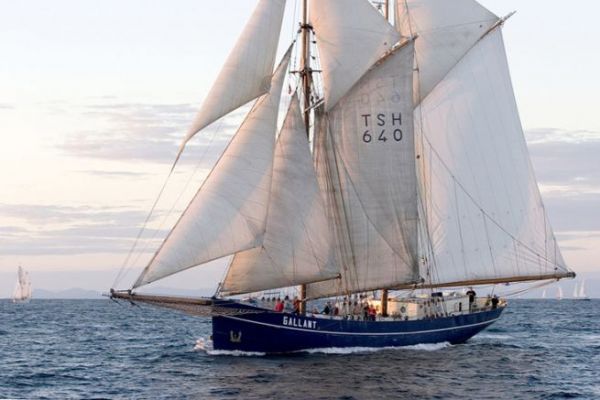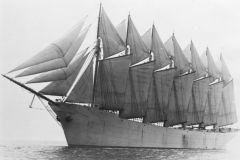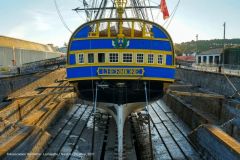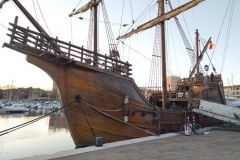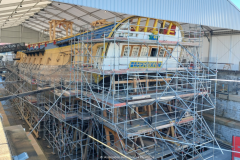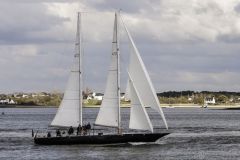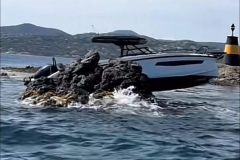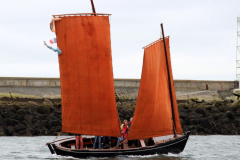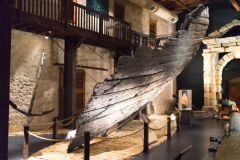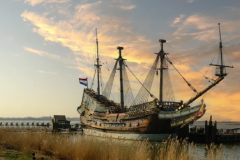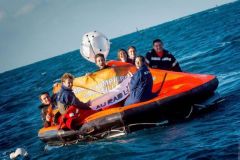Extreme weather that's hard to predict
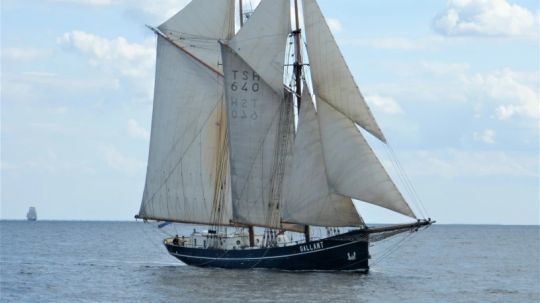
According to the BEAmer report published on March 11, 2025, the From Gallant was hit by strong winds of up to 70 knots while sailing at reduced speed, loaded with 22 tons of cargo. The crew consists of four professional sailors and four passengers.
The presence of leeward thunderstorms prompts the skipper to prepare the halyard and the downhaul of the clinfoc to allow a quick lowering maneuver in case of need.
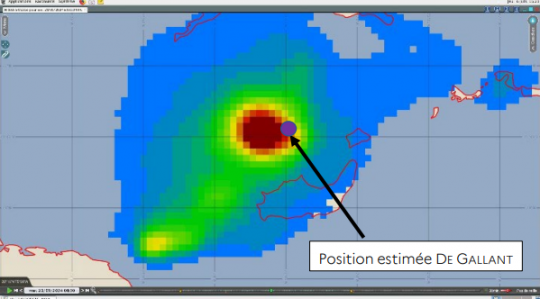
The formation of the storm supercell was not accurately predicted by the weather models. At 3:15 am, the first drops fell, and five minutes later, a violent gust turned the yacht 90°, letting water into the engine room. The second, even more powerful gust filled the engine room, condemning the ship to sink by the stern in less than ten minutes.
A difficult but life-saving evacuation
The captain, reacting immediately, gave the order to abandon ship and activated the distress beacons. The ship sank very quickly, and the rafts inflated thanks to the hydrostatic widebeds, mandatory in merchant shipping. Without this equipment, the crew's chances of survival would have been greatly reduced.
The entire crew was sucked into the wreck and spent several dozen seconds underwater.
Six people managed to reach the rafts, one of which was upside down, but two crew members, probably caught in ropes or sails, were unable to reach the surface. The six were airlifted to the surface by the US Coast Guard a few hours after the wreck.
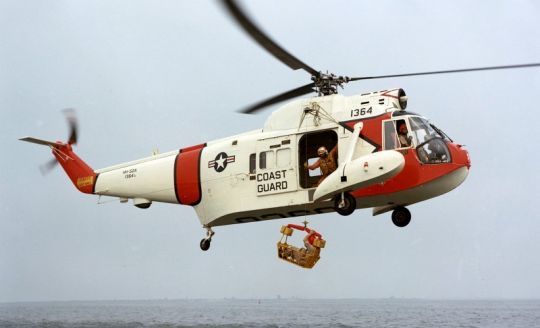
A parallel search failed to find the two missing sailors. The speed with which this tragedy unfolded was frightening. Only five minutes elapsed between the second captain's awakening and the sinking of the yacht.
A ship with complex manoeuvres
The report, which was not endorsed by the yacht's owner, highlights the difficulty of maneuvering an old cargo yacht without modern aids. Unlike other modernized traditional vessels, From Gallant had no winches or furlers, making maneuvering long and arduous, especially with a small crew. In addition, the water drainage systems on deck were undersized, aggravating the yacht's instability in gusty conditions.
Nevertheless, the schooner was perfectly in order, and well maintained.
A lesson in maritime safety
BEAmer recommends modernizing schooners for commercial use, with the installation of remote control systems and improved safety features. It also stresses the need for cargo sailing vessels to be crewed by sufficient, experienced personnel to cope with extreme weather events.
The sinking of the From Gallant is a powerful reminder that, despite the charms of traditional navigation, maritime safety requires technical and human adaptation to the demands of modern transport.

 /
/ 